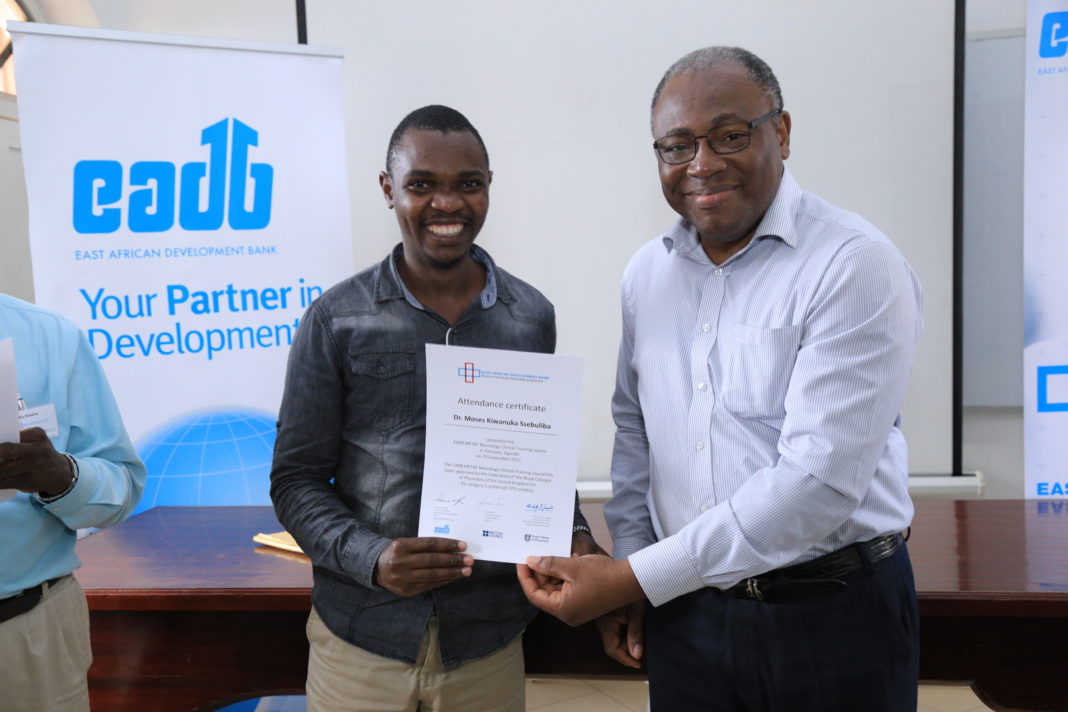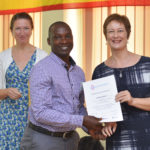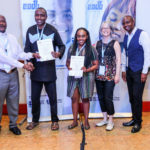Twenty-two Ugandan physicians recently completed a 5-day residential neurology clinical training course at Nsambya Hospital, aimed at stepping up the fight against non-communicable diseases and in particular, cancer.
The Medical and Training Fellowship programme is part of East African Development Bank’s long-term plan to equip doctors in district hospitals across Uganda and East Africa with the skills to effectively and promptly diagnose cancer and neurological disorders and facilitate early interventions either at the point of contact or by referral for advanced medical care.
The training, delivered by a mixed faculty from the United Kingdom and East Africa comprised of The Course Convener Professor Elly Katabira, Local Faculty Dr. Abdu Musubire, Dr Steven Matovu in addition to Dr. Jonathan Partridge and Dr. Ogunrin Olubunmi from the London Royal College of Physicians, was managed by the British Council in partnership with the London Royal College of Physicians.
“We hope that the programme will lead to better health for the people of East Africa and ease the growing burden that non-communicable diseases put on the economies of East Africa”, she added.
So far, over 70 physicians have participated in the Neurology and Neurology Training and Fellowship programme across East Africa this year, with another 150 scheduled to undergo the training before the end of the year.
EADB plans to train 600 physicians in four years leading to a rich exchange of skills, expertise and experience between the people of the UK and East Africa.
According to the EADB Director General Vivienne Yeda, the training will boost the medical fraternity’s capacity in Uganda and the region by availing qualified professionals who will tackle various cancers.
The World Health Organization estimates that 8.2 million people die annually from cancer, an estimated 13% of all deaths worldwide.
Despite an estimated 456 000 deaths caused by cancer in sub-Saharan Africa in 2012 and a cancer burden that is predicted to double by 2030, the region accounts for only 0·3% of worldwide medical expenditure for cancer.








